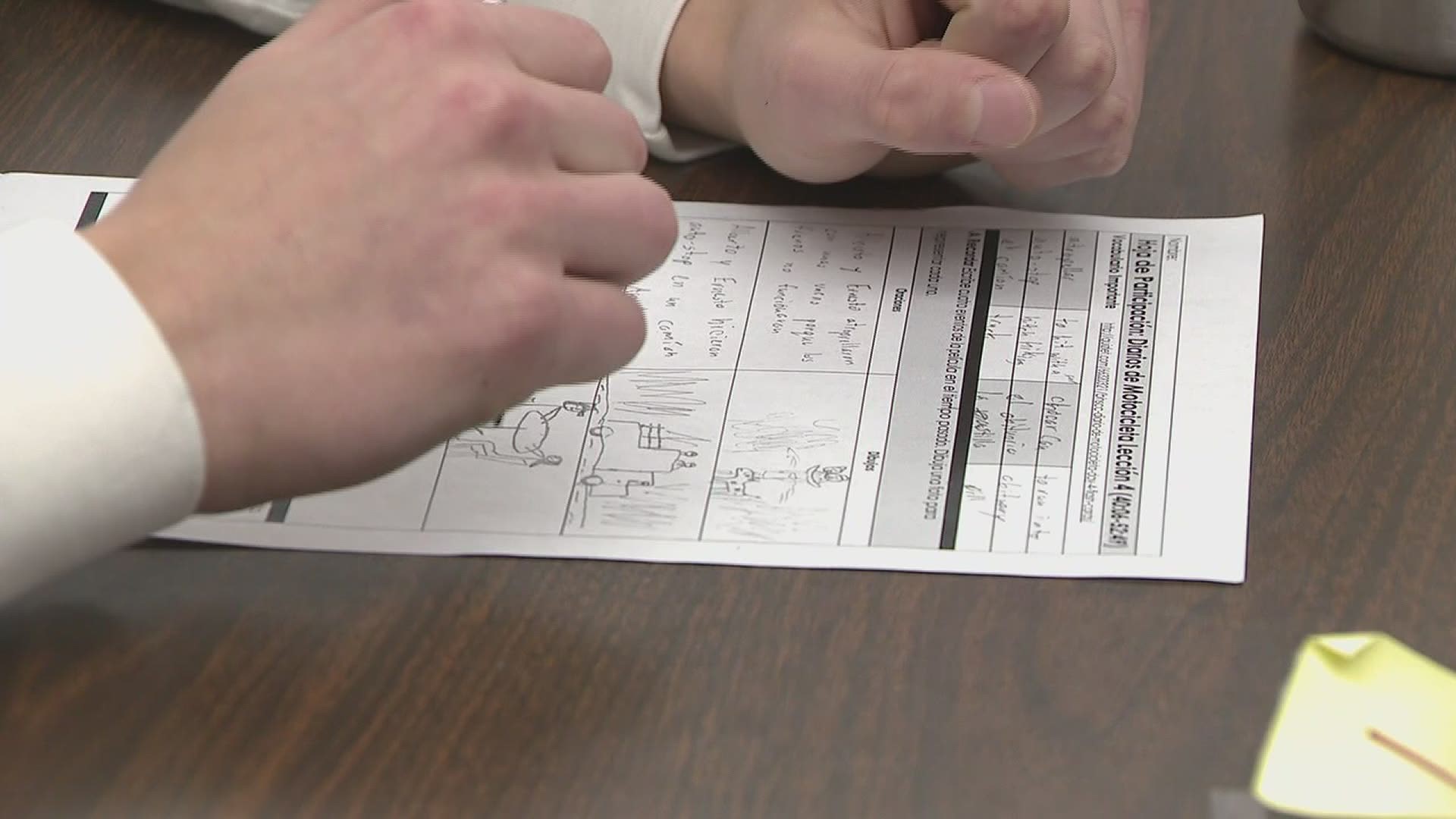DAVENPORT, Iowa — In Iowa, five low-income school districts have "diversity plans," which allow them to deny students from transferring out as a way to keep their school populations economically and linguistically diverse.
Davenport is one of the districts, and says they pride themselves on the real-world environments and opportunities they can provide to all of their students.
But on Tuesday, Feb. 2, a republican majority in Iowa's House of Representatives passed Bill 228, which says those "diversity plans" would no longer be able to reject open enrollment requests.
Right now, a request can be denied if another student of the same socioeconomic background or English Language Learning ability is not trying to enroll in at the same time. That would no longer be the case if the legislation makes it through the senate, although Davenport would still have jurisdiction over students trying to transfer within the district itself.
At Davenport, a district where 557 students requested to transfer away during this current school year, the bill could potentially mean hundreds of students leaving.
According to the Legislative Services Agency, Iowa's nonpartisan fiscal estimating agency, that would cost the district more than $783,000 - a figure that Davenport's Superintendent, TJ Schneckloth, says is probably a low estimate.
"The legislation that's out there really has the opportunity for lost funding to Davenport Community School District," said Schneckloth. "When we lose students to open enrollment, when we lose students to charters, vouchers, whatever it may be, it's gonna have a financial impact on us and it's gonna make us have to reevaluate the programs that we keep."
Schneckloth and several other area superintendents virtually spoke at the second 2021 Legislative Event Series on Feb. 5, hosted by the Quad Cities Chamber of Commerce.
He says some of the district's highlights include their specialized programs, apprenticeships, advanced placement courses, associates degree programs, and their fine arts academy. Those programs, he says, could potentially be looked at for cuts if the district loses students and money.
"Putting high-quality members to our society that have multiple languages, that have a welding certificate, that are automatically joining our workforce that way, [losing] those could have a major negative impact on us," he pointed out. "We wanna keep our own students. If we do have a loss of students due to some of those issues, then some of these programs will have to be revisited."
Schneckloth says the majority of students requesting to leave don't come from low-income families, meaning any future cuts would hurt those left behind - who might not have the means to transfer anywhere else - the most.
Now, other area school districts are leaning against the bill even though it could help them.
"When we start talking about the different proposals out there, this being one of them, for overall, the long-term, it does not help the quad cities putting Davenport in a position that it will have to struggle for longer with issues because of losing more kids," said Joe Stutting, superintendent of North Scott Community Schools District.
He admits the bill could bring more student and money into his district, but he believes that long-term, the entire region is benefited by quality education everywhere.
"This is coming from a district that knows financially we will gain," he said. "But is our gain truly a gain for the Quad Cities and Scott County? I think long-term and at a number of these proposals, that the overall gain isn't going to be there for us in this region."
Stutting says while the proposed legislation has good intentions behind it, he believes North Scott should fight for public education as a whole.
Dr. Michelle Morse, superintendent of the Bettendorf Community School District, agreed, stating that one unintended consequence of the bill would be to create a bigger gap between existing student groups.
"I've served in public education for over 25 years," she said, explaining that diversity is what she considers the "one equalizer that we have in our country. And I want to ensure that all of our communities schools are strong and continue to be able to have the resources they need to serve all of our students."
Supporters of the bill say it gives families more choice.
It now sits in Iowa's Senate Education Committee, waiting for debate.

